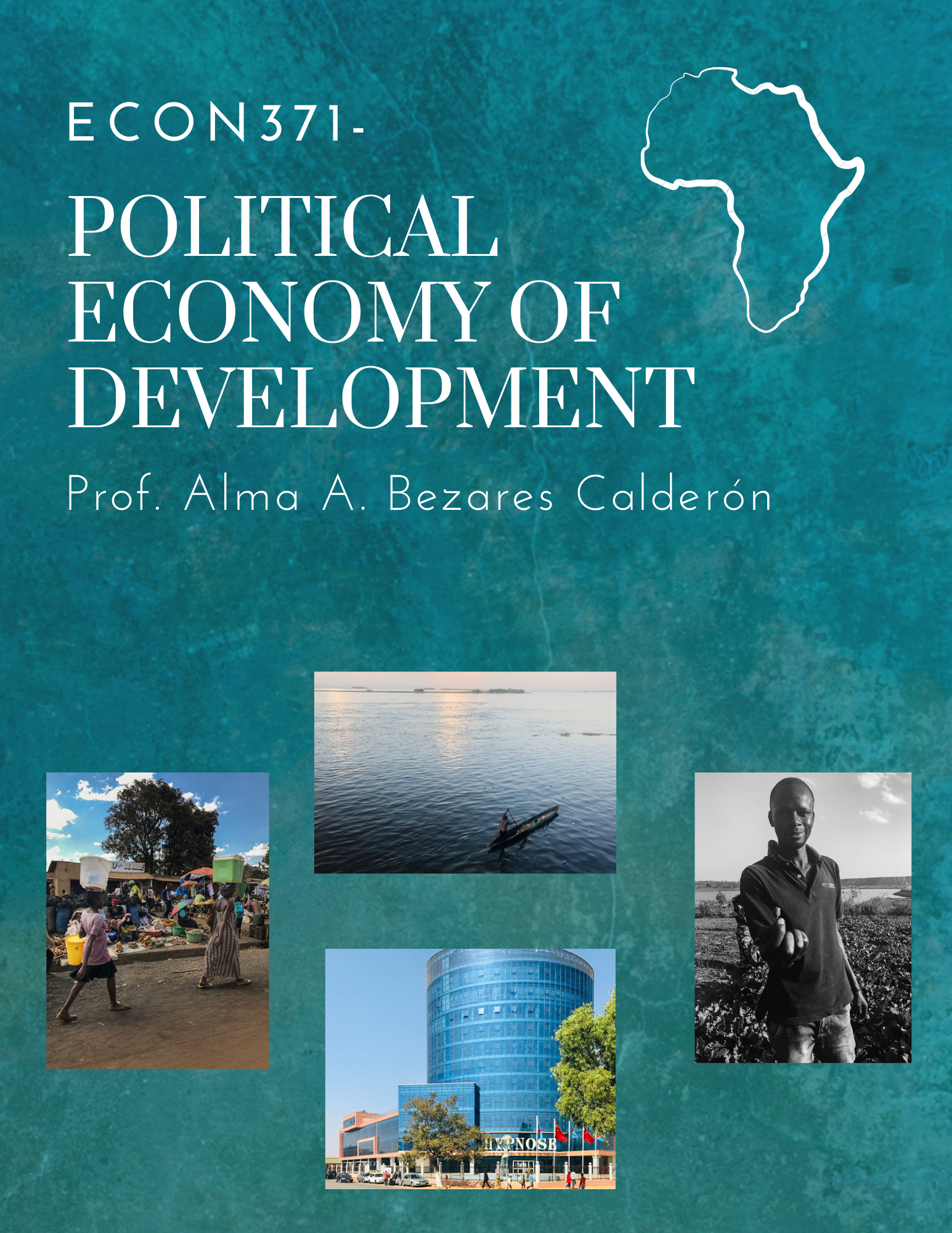Political Economy of Development
2023-01-11
Chapter 1 Course Information

The objective of this compendium is to provide a study guide for the course: ECON371- Political Economy of Development. This guide does not replace any of the books used in the course nor the lecture notes. However, it will help you to go through it, so you can understand and critically think about the material that we will cover in the course.
1.1 Team
- Professor: Dr. Alma A. Bezares Calderón
- Email: abezares@whittier.edu
- Dates: January 12-April 27
- Seminar hours: T Th- 1:30-2:50 pm
- Student hours: T - 9:00-10:00 am or by appointment
- Appointments: https://calendly.com/abezares/meeting-time
1.1.1 How to contact me?
The best way to contact me is through email. I am usually very fast at responding to my students, but plan for a 24-hour delay in my response during the weekdays. I usually do not check my email over the weekends, so please plan accordingly.
If you want to set up a meeting, you can use my Calendly (see info above). If you do not find a time that suits you, please send me an email and we can find a different time.
1.2 Course Overview
This course focuses on people’s living conditions and development issues in low- and middle-income countries, with particular emphasis on the African continent. However, we will also cover some cases in Asia and Latin America. In some cases, we will also talk about issues related to the United States, particularly when talking about the legacies of multiple policies on the development opportunities for different groups.
In this course, we will see that economic development does not happen in a vacuum, but it is surrounded by political and cultural phenomena that need to be taken into account when studying the livelihoods of peoples in low-income countries. We will analyze different perspectives, borrowing concepts from political scientists, anthropologists, historians, and, tangentially, on works of literature and other arts.
This interdisciplinarity will expose students to different and, sometimes juxtaposed, angles on various issues. This will encourage students to create a more comprehensive and nuanced view of economic development.
1.3 Who should take this course?
Although this course mainly targets students interested in making an impact in their professional life. This does not mean that students need to build a career in the development sector, but you can plan a career that will make the world a better place regardless of the sector you want to work in.
Yet, in order to attain this, it is key to understand what historical, societal, political, and economic factors affect the well-being and livelihoods of the most vulnerable sectors of the global population. We will learn that in class using approaches from multiple disciplines to obtain a more comprehensive vision of development.
The course is not only interdisciplinary, but it intends to be a hands-on course, where you will be able to (a) learn from experts in the field; (b) improve your innovation and leadership skills; (c) be a proactive actor in the path of making the world a better place.